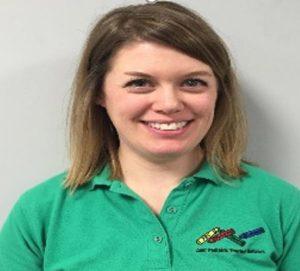Why Does My Child Behave This Way?
Every child has behaviors. It’s the nature of being a child! I am the mother of two small children. I have been a pediatric speech-language pathologist for over six years. So you can imagine how many behaviors I have seen! Some behaviors are typical for all children. They don’t always listen the first time you tell them something, and sometimes there are tears for not getting their way. However, some behaviors are not acceptable, such as aggressive behaviors or consistent defiance. These types of behaviors could include frequent/excessive crying, hitting, kicking, biting, scratching, frequently refusing to follow directions or other unsafe behaviors such as running/climbing. So why, you think to yourself, does my child behave this way? There is always a reason behind a behavior. Your child may be seeking your attention. He/she may be seeking physical movement, a sensory need. Your child may need a more structured environment. From my perspective as a speech-language pathologist, your child may have functional communication difficulties.
Communication is key piece of a functional life. We may not all communicate in the same way, but we all communicate one way or the other. When a child is unable to functionally communicate, their world is one big uphill battle. Communication is our way of knowing what a child wants, needs, thinks and feels. So ask yourself, how does my child get want he/she wants or needs? Talking? Pointing? Get it him/herself? Crying? As parents of young children, we are caring and providing for them on a daily basis. I hear parents frequently say, “I know what he wants; I get it for him.” As parents, we know our children better than anyone else in the whole world. So much of the time, it’s true; we do know what they need or want. But what about those times when we don’t know? Those are the times when we scratch our heads. As this begins to happen more often, the child becomes frustrated, and the behaviors can start to escalate or become more frequent. After a while, the parent is frustrated and doesn’t know what to do. We have to address the child’s communication challenges.
Try these:
1. Model the words for the child. Keep it simple. “More milk.” “Cracker please.” “Help me.” Have the child attempt to repeat the words. Attempt is the key word here. Maybe your child doesn’t have the speech sounds to say certain words perfectly. That’s ok. If you say “more milk” and your child says “muh muh,” praise him and say, “Oh thank you for using your words. Here is your milk.”
2. Give choices. You don’t know what she wants. Choose a few things in the general area of where she’s pointing. Ask if she wants one of those. If so, go back to step 1 and model the words. Praise the communication attempt.
3. Show me. Some children are quick to take your hand and lead you to what they want. Once you figure it out, go back to step 1 and model the words. Praise the communication attempt.
**Be a teacher. We as parents are our child’s first teachers. In the first 3-4 years of life, they learn just about everything from you. But, don’t fear! You don’t have to be a certified teacher or therapist to teach your children well. One thing we can all do more of is talk to our children. Children are like sponges. They tend to soak up whatever is thrown their way!
• Share books together every day. Grab a few free ones from the library. Read the story. But don’t stop there. Forget the words and tell the story just by looking at the pictures. Describe what you see. If your child says a word or two, expand on it. “Ball!” “Oh yes, the boy is playing ball in the grass.” “Doggie!” “I see! The doggie is eating his food.” You’re teaching your child vocabulary and sentence structure.
• Ask questions. If you’re child can’t answer the questions, that’s ok. Model the answers for them. “What are you playing with?” “Car!” “What does the car do? Drive? Drive car fast!” “Where does the car drive? On the road!” “Who rides in the car? Mom, brother, sister” “Where do we go in the car? Grocery store! School! Work!”
• Tell what you’re doing. As parents, it seems there is always something that has to be done! Dishes, laundry, yard work! The list goes on and on. Let your child be a helper! “I’m using warm water and soap to clean this plate. Then I’ll use a towel to dry it off.” “Oh, thank you for putting the clean clothes in the basket.” Just by narrating your actions, you’re teaching your child tons of vocabulary.
***As always, consult your doctor. Pediatricians try to ask as many questions as possible regarding your child’s development when you visit. Often, they ask about the child’s communication. If they do, give a detailed description of how your child communicates. If they don’t ask, bring it up! Talk about how your child communicates and ask if it’s age-appropriate. Don’t be afraid to talk openly and honestly with your doctor about this or any issue. It’s how you and your doctor can work together to provide the best care for your child. Your doctor can help you find the people and resources your child needs. If your child has communication difficulties, speech-language therapy can help you and your child communicate and reduce or even eliminate some behaviors.
Just remember, help is out there for you.
Katy Cavanaugh, MS, CCC-SLP 
ABC Pediatric Therapy Network
[email protected]
 Skip to content
Skip to content